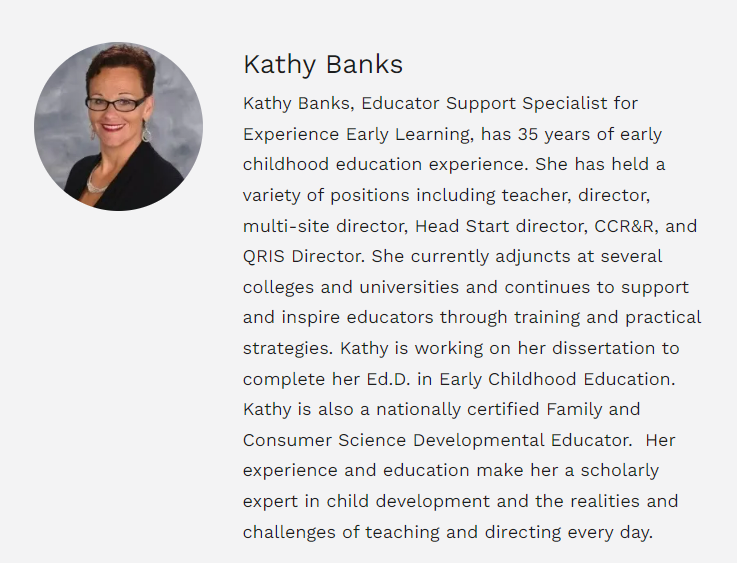Yay!! Congratulations, you got a new job. But, while starting a new job is exciting, you may also feel nervous and butterflies as you get closer to your first day. Let’s take a look at why you are feeling this way (the physical reason) and what we can do about it.

 Understanding our physical response to new situations and experiences actually helps us understand the feelings our new children may experience when they come to your class or program for the first time. Nerves and butterflies are actually caused by a neurologic response called fight-or-flight response.
Understanding our physical response to new situations and experiences actually helps us understand the feelings our new children may experience when they come to your class or program for the first time. Nerves and butterflies are actually caused by a neurologic response called fight-or-flight response.
The fight-or-flight reaction happens when your body experiences stress. New opportunities and experiences bring about stress. While many situations are positive stress, they are still stressful. Adults have the ability to adjust to new stressful situations, but children have a limited capacity to deal with positive or negative stress.
- Read more about supporting children with stress
- Read more about understanding positive and negative stress.
Tackling Your Nerves and Butterflies 
You have been waiting for this job. Maybe it is your dream job, or the perfect job, or the job you didn’t know you wanted until you were called and told you they wanted to offer you the position. Whatever the reason, shifting those nerves into confidence can be an adjustment. To adjust your nerves and create confidence to move forward takes something known as grit. Grit is passion and perseverance for long-term and meaningful goals. It is the ability to persist in something you feel passionate about and persevere when you face nervous stress or other obstacles that could prevent you from achieving what you desire. Grit doesn’t magically appear, it is something built by resilience. Research shows us that resilience is built through supportive relationships, adaptive skill-building and positive experiences. Adults who have a history of relationships, skills, and positive experiences may have developed a strong sense of grit that allows them to tackle nerves by pushing through positive stress like nerves and butterflies. But, children and some adults may not have developed these resilience…. yet.
Strategies to build skills and connect with others to build relationships can help children and adults build resilience and grit to tackle both positive and negative stressors. Talking to someone about your nerves allows you to overcome some of the anxiety you may be feeling about starting a new position.
Read more about resilience and its effects on the developing brain of children.
Building Relationships For Joy!

We are born to connect. In fact, research supports a need for relationships for a fulfilled life. Other people play a crucial role in our happiness. Relationships have already been shown to help us in developing grit to tackle nerves. But did you know that research also shows that relationships are the key to happiness and joy?
Having good people in your life has a lasting impact on our resilience, and overall longevity. One Harvard study on adult development (considered to be the most extended study, which started in 1938, tracked the lives of 724 men for 75 years) found that good relationships are the key factors that matter the most for long-lasting happiness.
Once we are able to get over the nerves of a new position, we can move onto building relationships with the children, families, and other teachers and staff. We can change the nerves and butterflies into opportunities for new connections and new happiness.
Read more about how relationships impact joy.
Join us for the rest of the YOU New Teacher Training Series!

REFERENCES:
Baruch-Feldman, C. (2017). What is grit, and why is it important? New Harbinger Publications. https://www.newharbinger.com/blog/self-help/what-is-grit-and-why-is-it-important/
Center on the Developing Child. (n.d.). Stress and resilience: How toxic stress affects us, and what we can do about it. Harvard University. https://developingchild.harvard.edu/resources/stress-and-resilience-how-toxic-stress-affects-us-and-what-we-can-do-about-it/
Center on the Developing Child. (n.d.). Inbrief: The science of resilience. Harvard University. https://developingchild.harvard.edu/resources/inbrief-the-science-of-resilience/
Center for Early Childhood Mental Health Consultation. (n.d.). Stress and the developing brain. Georgetown University Center for Child and Human Development. https://www.ecmhc.org/tutorials/trauma/mod2_3.html#:~:text=In%20response%20to%20overwhelming%20stress,(physical%20and%20emotional%20sensations).
Center on the Social and Emotional Foundations for Early Learning. (2010). Building positive relationships with young children. Vanderbilt University.http://csefel.vanderbilt.edu/modules/module1/handout5.pdf
Centerstone. (n.d.). Good vs bad stress.https://centerstone.org/our-resources/health-wellness/good-vs-bad-stress/
Character Counts Coalition. (2022). Six pillars of character. Drake University. https://charactercounts.org/character-counts-overview/six-pillars/
Oppong, T. (2022). Good social relationships are the most consistent predictor of a healthy life. https://community.thriveglobal.com/relationships-happiness-well-being-life-lessons/
Perlis, M. (2013). 5 Characteristics of grit. How many do you have? Forbes. https://www.forbes.com/sites/margaretperlis/2013/10/29/5-characteristics-of-grit-what-it-is-why-you-need-it-and-do-you-have-it/?sh=2b0361384f7b

